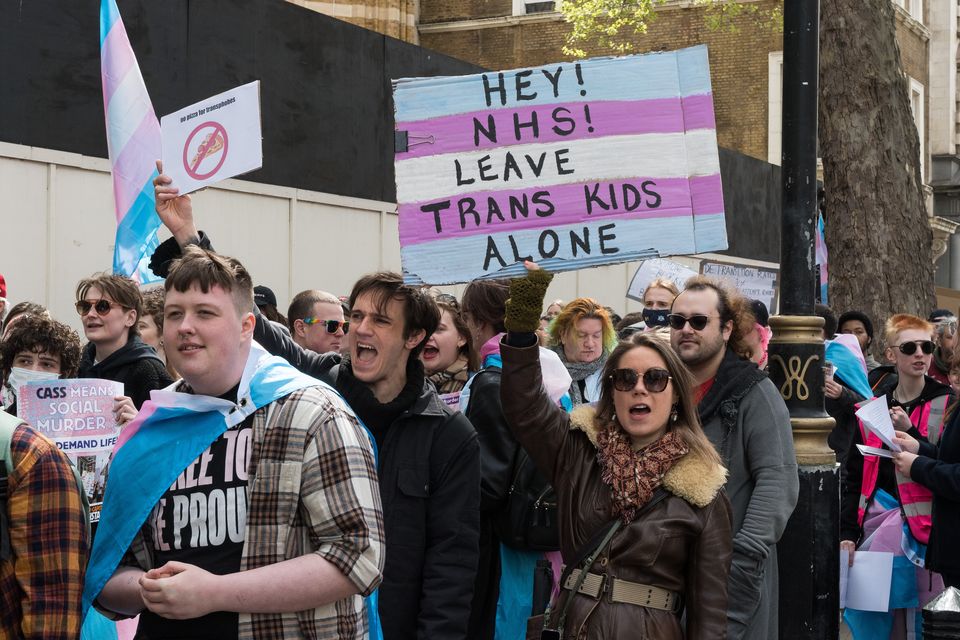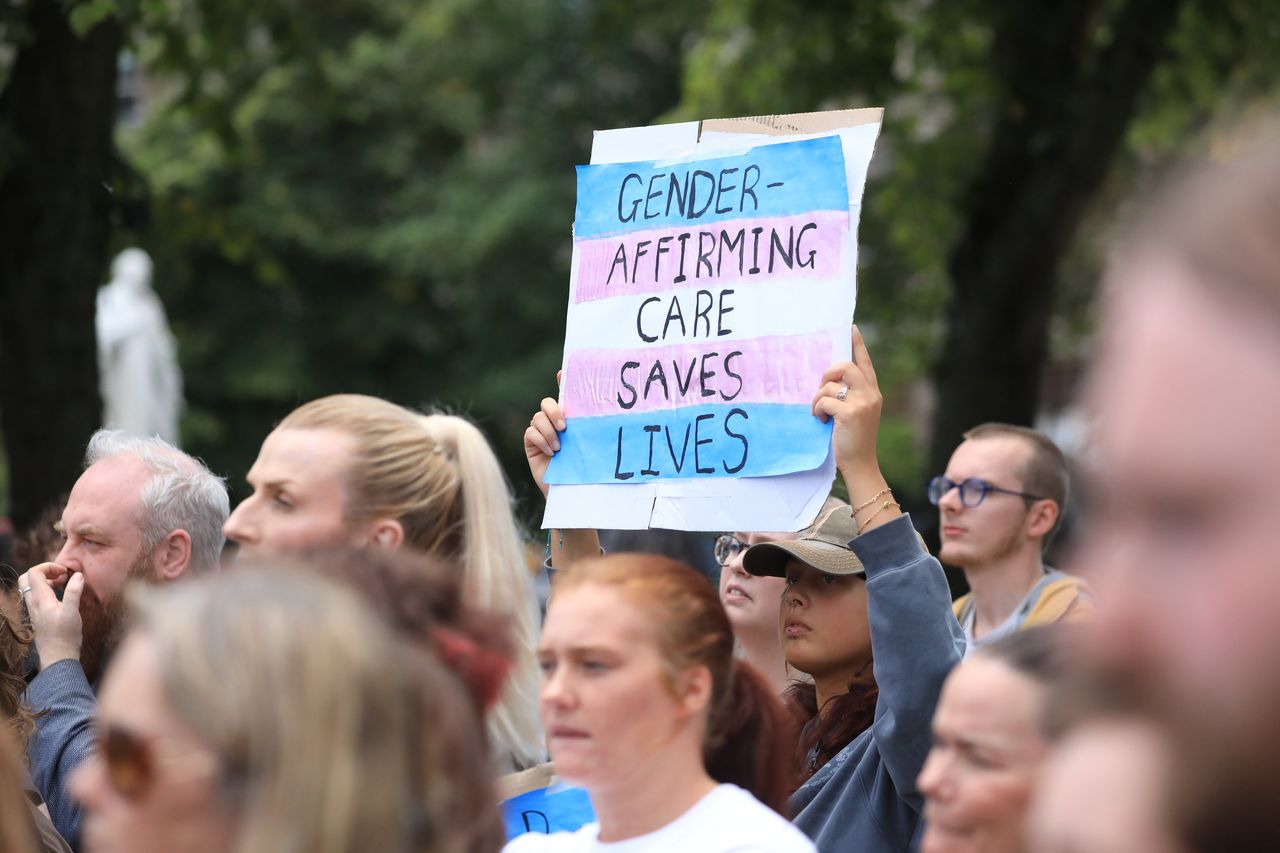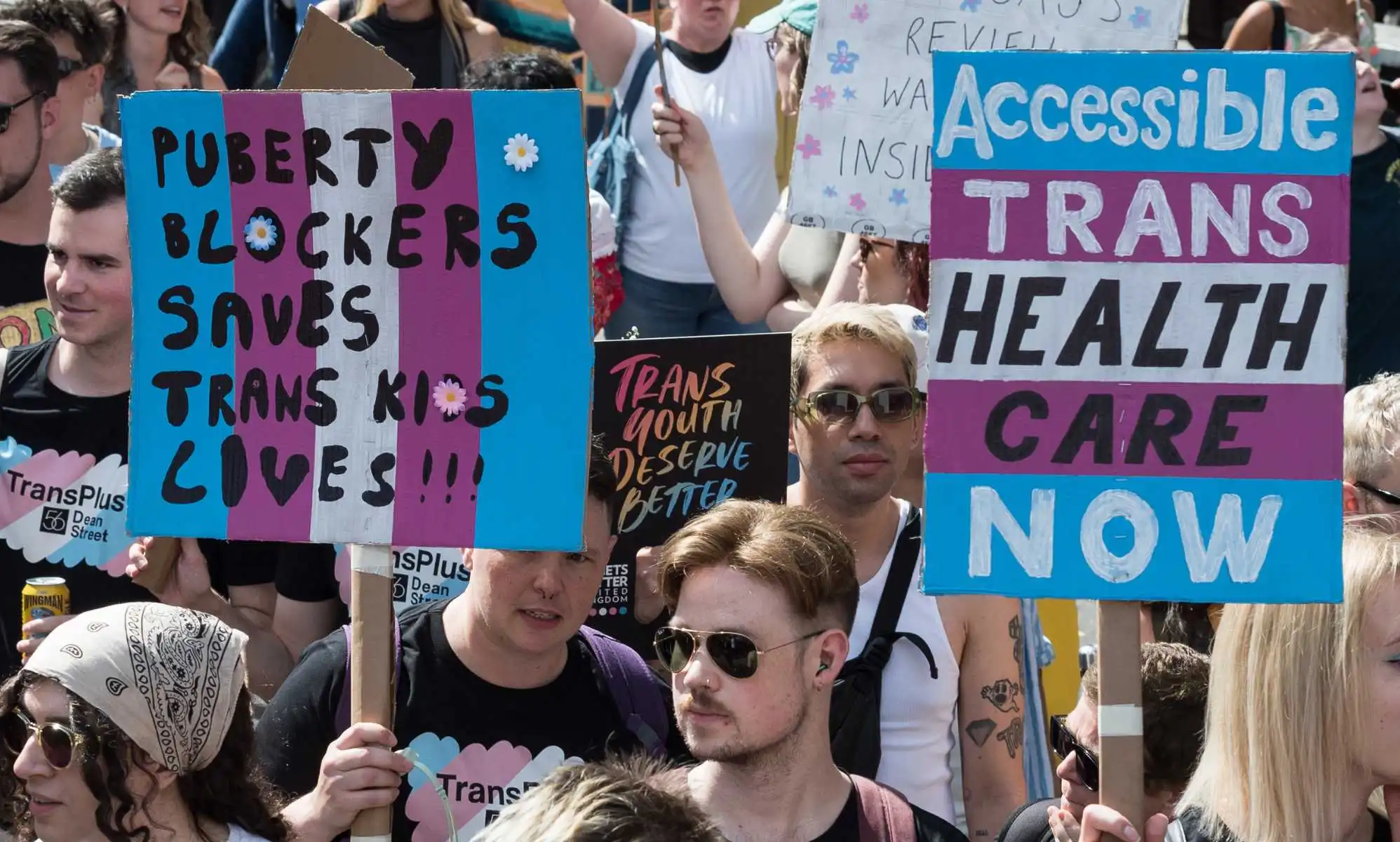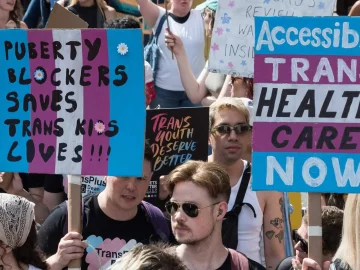Massive protests have broken out in Belfast after the puberty lock ban was extended to Northern Ireland. The authorities’ decision caused a wave of discontent among the local population, concerned about the restriction of rights and access to medical procedures for teenagers. The city’s streets filled with protesters expressing their disagreement with the new measures and demanding a review of the controversial law.
Department of Health under fire as drug ban sparks protests in Northern Ireland
The Department of Health has announced that the ban on the private sale and supply of this medicine has been extended to include private prescriptions in Northern Ireland. The drug, which is widely used to delay unwanted aspects of physical puberty and is particularly popular among teenagers under 18, will now only be available under strict government regulations, raising concerns among parents and medical professionals.
In response to the extension of the ban, protests broke out in both Dublin and Belfast. On Tuesday 27 August, around 100 people gathered in front of Belfast City Hall to express their opposition to the new restrictions. According to BBC News, the group said on social media: “These are troubling times for many affected by these changes. Now more than ever, it is important that our transgender loved ones feel our support and visible solidarity.”

Protesters posted photos on Platform X of participants holding signs with slogans such as “Remove transphobia from our healthcare system,” “Transgender Power,” and “Transgender Freedom Now.”
Following the extension of the ban, activists expressed strong criticism of the British government. LGBTQ+ rights organization TransActual condemned the decision, describing it as potentially dangerous to the health and well-being of transgender people.
Bans and protests: expanding restrictions on puberty blocking in different countries
Bans on puberty blocking, used to slow or prevent the development of secondary sexual characteristics in transgender teenagers, are spreading in several countries, sparking significant debate and protest. Among these countries are:
- United Kingdom: In recent years, the UK government has tightened its policies regarding access to puberty blockers, particularly for minors. In 2020, the High Court of England and Wales ruled that children under 16 must be legally authorized to receive these drugs, significantly limiting their availability. The ban was recently extended to Northern Ireland, sparking protests and criticism from LGBTQ+ organizations.
- Sweden: In 2021, Sweden revised its policy on the use of puberty blockers, limiting their use to rigorous clinical trials only. The decision comes after studies pointing to possible long-term risks and a lack of data on the safety of these drugs.
- Finland: Finland has also taken steps to limit the use of puberty blockers, citing the need for more careful analysis of the long-term effects of their use. New guidelines were published in 2020 which suggest that such drugs should only be used in exceptional cases and after a full assessment of the teenager’s health.
- USA: In the US, the situation with puberty blockers varies by state. Some states, such as Arkansas and Alabama, have passed laws banning or significantly limiting access to these drugs for minors. These measures have sparked numerous lawsuits and criticism from human rights organizations.

These countries demonstrate different approaches to regulating puberty blockers, reflecting the growing debate surrounding their use and impact on the health of transgender adolescents.




